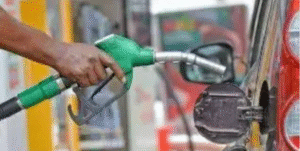MRS Raises Pump Price of Dangote Refinery Petrol to N925 Per Litre in Lagos Amid Growing Public Concern; Lagos, Nigeria

In a development that is likely to fuel further public anxiety over the cost of living, MRS Oil Nigeria Plc, one of the major distributors of petrol produced by the Dangote Petroleum Refinery, has officially raised its pump price of Premium Motor Spirit (PMS) to N925 per litre in Lagos. The price adjustment was confirmed on Saturday, sparking outrage among motorists, commuters, and stakeholders in Nigeria’s downstream petroleum sector.
This price hike marks a significant increase from the earlier average retail price of between N610 and N680 per litre in major urban centres, and raises pressing questions about the expected relief that many Nigerians hoped would follow the commencement of local refining by the much-celebrated Dangote Refinery.
From Relief to Shock
The Dangote Refinery, commissioned with the promise of reducing Nigeria’s long-standing reliance on imported fuel and stabilizing the domestic market, has only recently begun distributing locally refined PMS. Its products, initially expected to drive down prices, are now being sold at what many Nigerians see as unaffordable rates — with MRS, one of the primary retailers, leading the new wave of price adjustments.
Motorists in Lagos who spoke to [Your News Outlet Name] expressed frustration and confusion over the development. “We were told Dangote would help end fuel importation and reduce prices. Now we’re paying almost N1,000 for a litre of fuel? This is not what we were promised,” said Adebayo Tunde, a commercial driver in Ikeja.
Industry Perspective
MRS, in its statement justifying the increase, cited various market-driven factors including transportation logistics, depot charges, tax obligations, and ongoing volatility in foreign exchange markets — all of which contribute to final pump pricing. The company also pointed to the limited availability of refined PMS as the refinery scales up production, creating a demand-supply imbalance.
An official within MRS, who spoke on condition of anonymity, explained:
“The pricing reflects the actual cost structure under the current market conditions. It’s not a government-controlled price. We are sourcing from a domestic refinery, yes, but factors like haulage, distribution, levies, and operational margins still apply. We expect prices to stabilize as the refinery ramps up production and more marketers get direct allocations.”
Public Backlash and Economic Implications
The news of the N925/litre pricing has triggered strong reactions on social media, with citizens accusing the government and private oil marketers of insensitivity in the face of worsening economic hardship. Hashtags such as #FuelPriceHike, #DangoteFuel, and #NigeriansDeserveBetter began trending on X (formerly Twitter), with many questioning the impact of deregulation and local refining if prices continue to soar.
This development comes amid a cost-of-living crisis that has left millions struggling with inflation, food insecurity, and unemployment. The upward adjustment of petrol prices is expected to worsen these conditions, particularly as transport fares, food prices, and general goods and services will inevitably rise in response.
Labour unions have also weighed in, warning that further increases in fuel prices could trigger fresh rounds of protests and industrial actions. The Nigerian Labour Congress (NLC) and Trade Union Congress (TUC) have both reiterated their demand for urgent government intervention to prevent deeper economic misery for the working population.
Policy Silence and Market Uncertainty
As of the time of filing this report, there has been no official response from the Nigerian Midstream and Downstream Petroleum Regulatory Authority (NMDPRA) or the Ministry of Petroleum Resources. Experts believe the federal government may be taking a cautious stance due to its full adoption of a deregulated downstream sector — a policy shift that theoretically removes price control and allows marketers to set rates based on market realities.
However, energy economist Dr. Tunji Ogunsola told [Your News Outlet Name] that without robust regulatory oversight and competition in the supply chain, deregulation risks creating a monopoly-like environment where few players can dictate prices to the detriment of the public.
“The current structure benefits major marketers and suppliers while leaving end-users exposed. Dangote is a national asset, but if his products are only accessible to a few big marketers at high rates, the common Nigerian won’t benefit,” he said.
What Next?
With the refinery still in the early stages of PMS production, and more marketers seeking direct supply agreements, industry observers expect fluctuations in pump prices over the next few months. Some suggest that once Dangote’s full production capacity is unlocked and other private refineries begin operations, competition may drive prices down — but that outcome is still speculative.
For now, the burden rests squarely on the shoulders of Nigerians, many of whom are struggling to adapt to what appears to be a new normal of high fuel costs — despite local production.